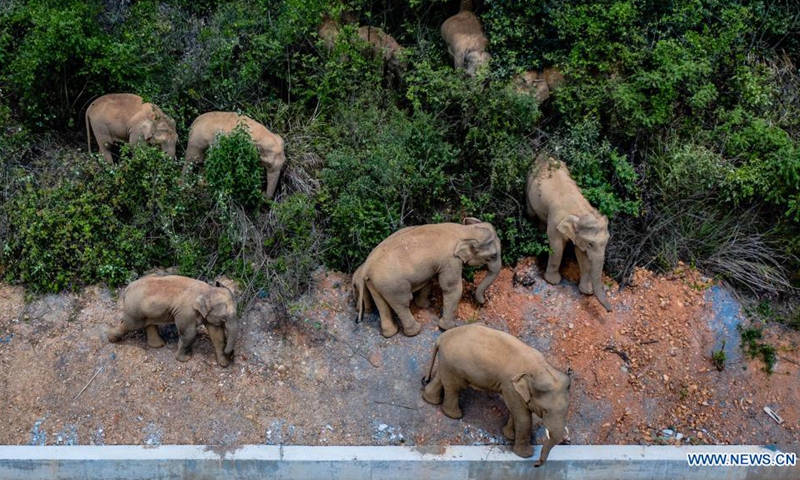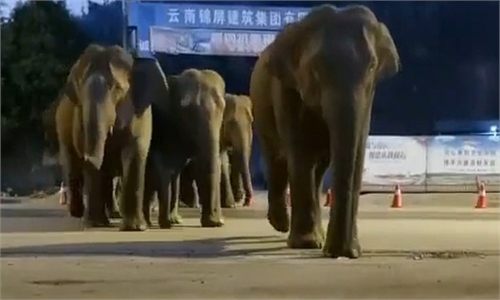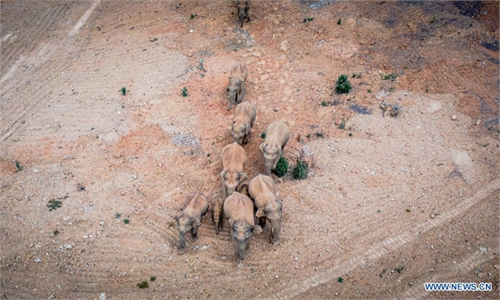
Aerial photo taken on May 28, 2021 shows a herd of wild Asian elephants in Eshan County, Yuxi City, southwest China's Yunnan Province. Authorities are tracking 15 wild Asian elephants in southwest China's Yunnan Province as the herd migrates northward. The elephants are now wandering in the county of Eshan, following a long journey from the province's southmost prefecture starting from April 16.(Photo: Xinhua)
Local authorities are tracking a herd of 15 wild Asian elephants in Southwest China's Yunnan Province as the animals migrate northward to urban areas. The elephants have travelled more than 400 kilometers, which is said to be a record journey, and local authorities have vowed all efforts to persuade these animals to return home.
Starting from Yunnan's southernmost prefecture, their original habitat Xishuangbanna National Nature Reserve, the elephants wandered through the county of Eshan and entered the city of Yuxi, less than 50 kilometers from the provincial capital of Kunming, the Yunnan provincial forestry and grassland administration said on Saturday.
Monitoring images showed that the herd includes six female adults, three male adults, three sub-adults, and three cubs.
The herd's journey started on April 16. During the 40-day journey, the elephants damaged 842 mu (56 hectares) of crops and caused severe inconvenience for local people. No injuries or casualties were caused to local residents.
The provincial forestry and grassland administration said on Friday that it would take a variety of measures to prevent the animals from moving north and gradually return them to their original habitats, which will be safer.
Although Asian elephants rarely interact with human beings, in this case, people may be able to prevent the herd from entering the city and causing casualties. It would also be better for the elephants, Zhang Li, a field wildlife biologist and professor on mammal conservation at Beijing Normal University, told the Global Times on Sunday.
"Elephants should be blocked from densely populated areas, for example with vehicles," Zhang said. "Sugar cane and salt can be used as bait to seduce the herd to take a U-turn."
However, as the herd is far from its original habitat, it is uncertain that it will return along the same way, Sun Quanhui, a scientist from the World Animal Protection organization, told the Global Times.
As for why the herd made its journey, the reduction of suitable habitat inside the former reserve is believed to be the root cause, ecologists noted.
The number of Asian elephants in China has increased from about 170 in 1980 to today's 300, but the habitat area has decreased from 2,084 square kilometers in 1976 to less than 500 square kilometers in recent years.
Unable to get enough food in the rainforest, the Asian elephants have to move to the edge of the forest and come to inhabited villages and farmlands in search of food, experts said.
"Large-scale human engineering developments have exacerbated the 'islanding' of elephant habitats," Zhang said. "The traditional buffer zones between humans and elephants are gradually disappearing, and the chances of elephants' encountering humans naturally increase greatly."
The expert said the recovery of the environment of the habitat is key to preventing any future elephant "exodus."



